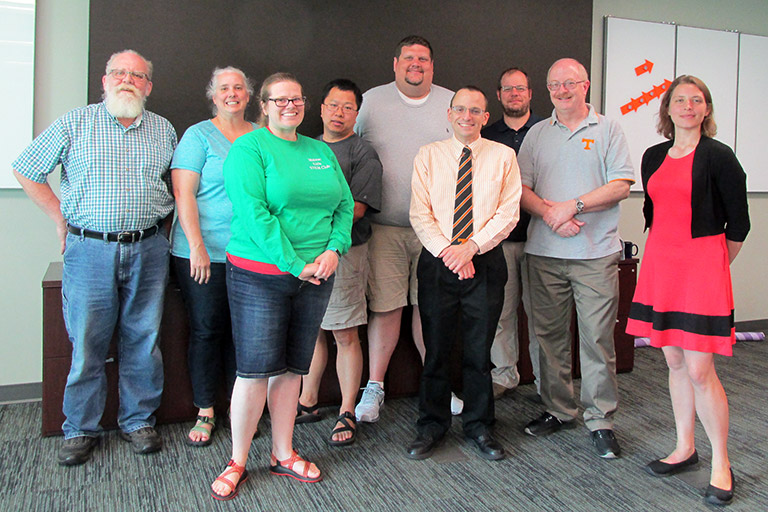
Tim Truster (fourth from the right) and co-teacher Jennifer Lawrie (far right), pictured at the June 2019 event with their cohort of participants.
As part of the outreach component of his NSF CAREER award, Associate Professor Tim Truster recently participated in a workshop hosted by Oak Ridge Associated Universities (ORAU) targeted to high school physics teachers that focused on vectors.
The majority of participants included those teaching middle school physical sciences and high school geometry and math, however, some veteran physics teachers and some science teachers who are teaching physics for the first time also attended. The six-hour workshop was held virtually this year, allowing teachers from other states to join.
“Our team put in effort to synergize educational research with our ideas to produce a multi-faceted workshop,” said Truster. “I saw many of my friends struggle with physics back in high school, so I enjoy giving back to teachers to help them engage their students. ORAU K-12 STEM Education Programs has been great to work with.”
Truster co-taught with Jenifer Lawrie, who has taught high school physics at Webb School of Knoxville since 2012. Together, they covered the challenges that students have learning and using vectors and how they demonstrate misconceptions about them when they come to college.
Often, more than 40 percent of students entering college physics and engineering are not successful at solving vector problems—like identifying vectors with equal magnitude or solving equilibrium equations—even if they had a high school physics class.
They also discuss why vectors are important for engineering, especially civil and mechanical engineering, including the design of structures, analyzing structural connections, observing material failure modes, modeling crack paths, and so forth.
The workshop focuses on a few key educational research papers about instruction methods, some of which are less commonly known but have been shown to improve the level of comprehension in students. It also covers laboratory examples, handouts with example problems to solve in class, and demos of several vector simulators available online for calculating with vectors, manipulating them, etc.